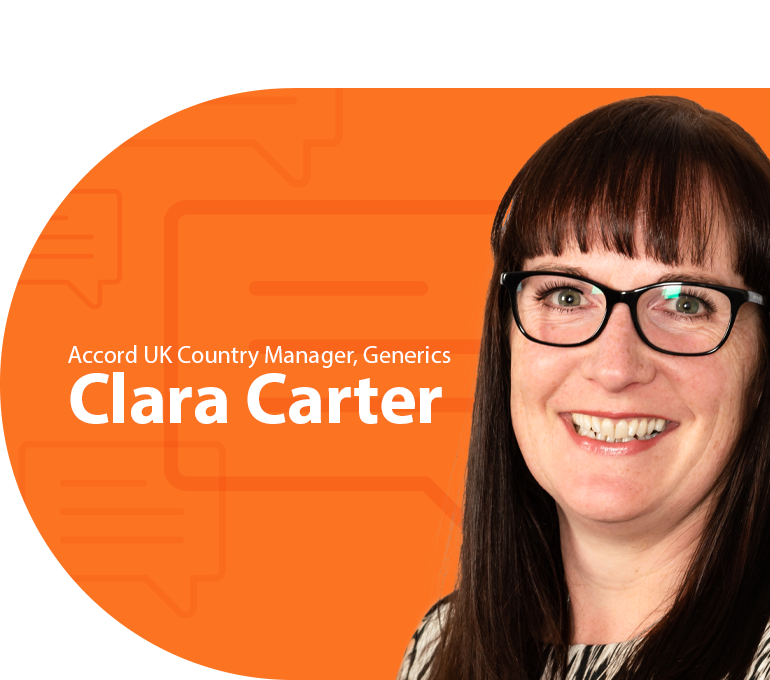By Clara Carter, UK Country Manager, Generics
Back in September last year, I joined a Life Science Access Academy panel and spoke about the strain on community pharmacy. I said then we were facing a “perfect storm” of soaring pharmacy operating costs, constrained funding, and at times, a fragile supply chain. Seven months on as I returned to the LSAA community as part of the ‘Generics, Branded Generics and Biosimilars: NHS update’ panel, the storm’s strong winds continue to blow, but there are glimpses of blue sky ahead.
April saw the announcement of a two-year, £3 billion funding package for community pharmacy, including £900 million of retained margin via Category M. It is the biggest investment in pharmacy for the last 10 years and a positive and encouraging step. But if we’re serious about stabilising pharmacy for the long term, this must be the start, not the finish line.
The funding challenges are still real. A recent independent review found that 47% of pharmacies in England are unprofitable and 99% are losing money providing NHS services. From April, community pharmacies face £310 million in unplanned costs due to National Insurance increases, the National Living Wage and rising business rates. We’ve now fallen below 10,000 pharmacies in England, the lowest number since 2005, with 45 closures reported since the end of 2024.
If pharmacy is going to fulfil its growing role in the NHS, it must be funded to enable this. Programmes like ‘Pharmacy First’ are already demonstrating what’s possible. Over 9,976 pharmacies delivered 423,000 Pharmacy First clinical pathway consultations between January and April this year, with 78% resulting in a medicine being supplied. But consultations take time and resources. There are still examples of pharmacists spending 20 minutes with a patient only to find that they’re not reimbursed because the consultation didn’t meet every requirement. That’s not sustainable for anyone.
In addition, the government’s much anticipated NHS 10-Year Plan for the NHS in England will emphasise moving care from hospitals to the community, but this in turn needs to come with commensurate revision of funding. That could represent a significant opportunity, if matched by the right level of support.
The strain is also showing in the supply of medicines. In April, 825 million packs were reimbursed at 99p or below, up from 600 million just six months earlier. That now accounts for nearly 58% of all Category M volume. It’s hard to imagine any other essential product being valued so low. Yet for that price, we expect the full supply chain, from API and manufacturing through to final delivery and dispensing, to hold together.
We’ve seen some generic medicines being sold for single digits. When I say single digits, I mean 9p or below. The model just doesn’t reflect the complexity of today’s market. Even where prices are increasing due to manufacturing and logistics pressures, the reimbursement levels often remain unchanged. Unless that gap is addressed, we’ll see more withdrawals from the market and greater fragility in supply.
Another ongoing issue is concessionary pricing. Too often, pharmacists are operating in the dark, not knowing if they’ll be reimbursed back to their purchase price. Such uncertainty makes it incredibly difficult to plan or to guarantee stock for patients. We need a more predictable, transparent system to maintain confidence.
Longer term, there is a major opportunity to support NHS sustainability through the growth of the off-patent sector. Between now and 2029, 255 medicines will lose patent protection, generating an estimated £18 billion in NHS savings, but only if that supply is backed by a viable commercial model. This includes both generics and biosimilars, and the need for a supportive policy environment is clear. If we don’t get it right, billions of pounds are at risk and so is timely patient access to affordable, effective treatment.
It is encouraging to see the signs of government engagement in recent months. The visit by Life Sciences Minister Baroness Merron to the BGMA earlier this year, and her recognition of the off-patent sector’s importance, was well received. Baroness Merron specifically mentioned Accord as a company that continues to invest significantly in the UK and expressed her support for including generics and biosimilars in the new Life Sciences Sector Plan. That kind of cross-government focus is a reassuring and positive signal for our sector.
We also have to remain alert to global shifts. As we discussed on the panel, tariffs and policy changes in the US will have ripple effects. We’ll need to manage this closely to see where the vulnerabilities are in supply chains and how those shifts might affect sourcing, from API to packaging.
It’s not all about challenge. There are opportunities too. The growing focus on prevention and early detection, driven by initiatives like Our Future Health, will reshape demand. As more people are diagnosed and treated earlier, pharmacies will become an even more essential part of the health system, but to deliver, they need the right support, from funding to physical footprint to digital tools.
So yes, I welcome the new funding agreement, but it has to be more than a moment. It needs to be the start of a wider shift in how we value and support community pharmacy. Pharmacy is a critical cog in the healthcare system and the more we recognise that, the better chance we have of building something that lasts.
Date of prep: April 2025 Job bag number: UK-Gen-NP-01540



